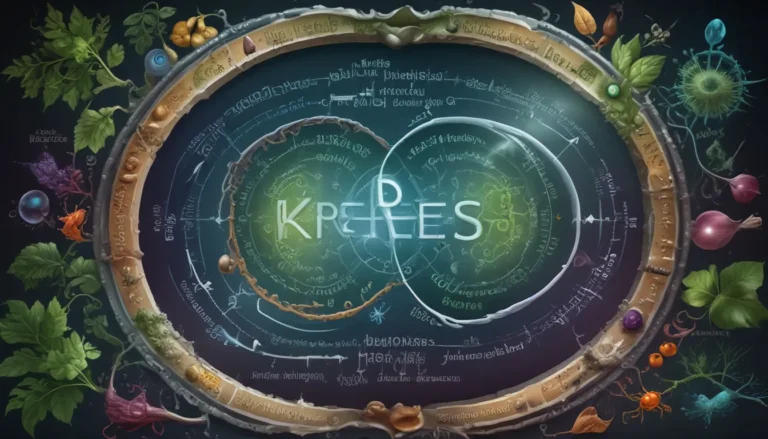A Note About Images: The images used in our articles are for illustration purposes only and may not exactly match the content. They are meant to engage readers, but the text should be relied upon for accurate information.
Food fermentation is more than just a culinary technique – it’s a transformative process that has been utilized for centuries to elevate the taste, texture, and nutritional value of various foods. From the tangy allure of yogurt to the crisp tanginess of sauerkraut, fermented foods have not only delighted our taste buds but also provided numerous health benefits. In this article, we will delve into the captivating world of food fermentation and uncover 12 astounding facts that shed light on its historical significance, the diverse array of fermented foods, the science behind the process, and the potential health advantages. Whether you’re a food connoisseur or simply curious about the intricacies of fermentation, these facts will spark your interest and deepen your appreciation for this ancient culinary tradition.
Uncovering the Magic of Food Fermentation
Fermentation: Nature’s Culinary Alchemy
Fermentation is a natural metabolic process where microorganisms like bacteria, yeast, or mold break down carbohydrates in the absence of oxygen. This age-old technique has been harnessed by humans for millennia to both preserve and transform food, resulting in an array of delicious and nutritious fermented products.
The Symphony of Flavors in Fermented Foods
During fermentation, these microorganisms produce enzymes and organic acids that contribute to the distinct flavors and textures of fermented foods. From the tangy kick of sauerkraut to the effervescent fizz of kombucha, the magic of fermentation is evident in the rich tapestry of flavors it creates.
A Boost for Gut Health: Probiotics in Fermented Foods
Fermented foods are rich in probiotics, beneficial bacteria that support a healthy gut microbiome. Staples like yogurt, kefir, and kimchi are teeming with these probiotics, which not only aid digestion but also bolster the immune system and promote overall well-being.
Unlocking Nutritional Value Through Fermentation
The process of fermentation enhances the availability of nutrients in foods by breaking down complex compounds into easier-to-absorb forms. This bioavailability boost enhances the nutritional content of fermented foods, making them a valuable addition to a healthy diet.
Celebrating the Impact of Food Fermentation
A Sustainable Solution: Reducing Food Waste Through Fermentation
Fermentation offers a sustainable solution to food waste by repurposing perishable fruits and vegetables that would otherwise be discarded. By fermenting these ingredients, they gain a longer shelf life, contributing to a more efficient and eco-friendly food system.
Longevity in a Jar: The Extended Shelf Life of Fermented Foods
Thanks to their natural preservation properties, fermented foods boast a longer shelf life compared to their non-fermented counterparts. This durability makes them an ideal choice for individuals seeking nutritious and long-lasting food options.
A Global Tapestry of Taste: Fermented Foods Across Cultures
Fermented foods are woven into the culinary fabric of diverse cultures worldwide. From the tangy Sauerkraut of Germany to the fiery Kimchi of Korea, fermentation plays a pivotal role in infusing unique flavors and cultural diversity into traditional cuisines.
Beyond the Kitchen: Fermentation in Brewing and Winemaking
Fermentation isn’t limited to the realm of food – it also plays a crucial role in brewing and winemaking. The conversion of sugar into alcohol and carbon dioxide by yeast during fermentation yields a delightful array of beverages, from wine to beer.
Nurturing Health Through Food Fermentation
Reaping Digestive Rewards: Improved Gut Health Through Fermentation
Consuming fermented foods can nurture a healthy digestive system. The beneficial bacteria present in these foods aid in breaking down carbohydrates, facilitating proper nutrient absorption, and maintaining a harmonious gut microbiota.
Fortifying Immunity: The Immune-Boosting Power of Fermented Foods
Probiotics found in fermented foods fortify the immune system by fostering the growth of beneficial bacteria that combat harmful pathogens. Additionally, fermented foods contain immune-enhancing vitamins and antioxidants that bolster our body’s defenses.
Versatility Unleashed: Transformative Potential of Fermentation
Fermentation unlocks the versatility of ingredients, transforming ordinary components into extraordinary products. Soybeans, for example, can be fermented to yield a range of Asian staples like soy sauce, miso, and tempeh, renowned for their unique flavors and textures.
Safety First: Ensuring Proper Fermentation Practices
When done correctly, fermentation is a safe and controlled process. By following prescribed recipes and maintaining hygiene standards, individuals can safely ferment foods at home and enjoy the myriad benefits of this time-honored preservation method.
Embracing the Artistry of Food Fermentation
In conclusion, the art of food fermentation is a captivating journey that intertwines flavor, tradition, and health benefits. By incorporating fermented foods into our diets, we not only elevate our culinary experiences but also nourish our bodies with probiotics and enhanced nutrients. From the tang of sauerkraut to the complexity of miso, fermented foods offer a vibrant tapestry of flavors and textures that enrich our gastronomic adventures. So, why not embark on a culinary exploration of fermented delights and savor the delightful results?
Exploring Further: FAQs on Food Fermentation
-
What is food fermentation?
Food fermentation is a natural process where microorganisms convert sugars and carbohydrates in food into alcohol, acids, and gases, enhancing flavors, preservation, and nutritional value. -
Why is fermentation good for you?
Fermentation increases nutrient bioavailability, aids digestion, and supports a healthy gut microbiome, offering a host of health benefits including improved immunity. -
What are some common examples of fermented foods?
Common fermented foods include yogurt, cheese, kimchi, kombucha, miso, and sourdough bread, each offering unique flavors, textures, and nutritional benefits. -
Can anyone consume fermented foods?
Most individuals can enjoy fermented foods, but those with dietary restrictions should consult a healthcare professional before incorporating them into their diets. -
Can I ferment food at home?
Absolutely! Home fermentation is a rewarding process that can be started with simple recipes like sauerkraut or pickles, provided proper food safety measures are followed. -
How long does fermentation take?
The duration of fermentation varies based on the food type and desired flavors, with some fermentations completing in days and others taking weeks or months to develop desired characteristics. -
Are fermented foods safe to eat?
When prepared and stored correctly, fermented foods are generally safe, as the fermentation process creates an environment inhospitable to harmful bacteria. -
Can I cook with fermented foods?
Yes, fermented foods can be used in cooking to add depth and complexity to dishes, enhancing flavors with their unique profiles. -
Do fermented foods always have strong flavors?
Not necessarily. While some fermented foods boast bold flavors, others offer milder profiles, depending on the fermentation process and ingredients used. -
Can I ferment foods without salt?
Although salt aids fermentation by creating a favorable environment for beneficial bacteria, alternatives like brine or whey can be used for certain fermentations.
Discover the magic of fermentation and savor the diverse flavors and health benefits it offers. Embrace the ancient wisdom of this culinary tradition and embark on a journey that celebrates the transformative power of fermentation in the world of food.






